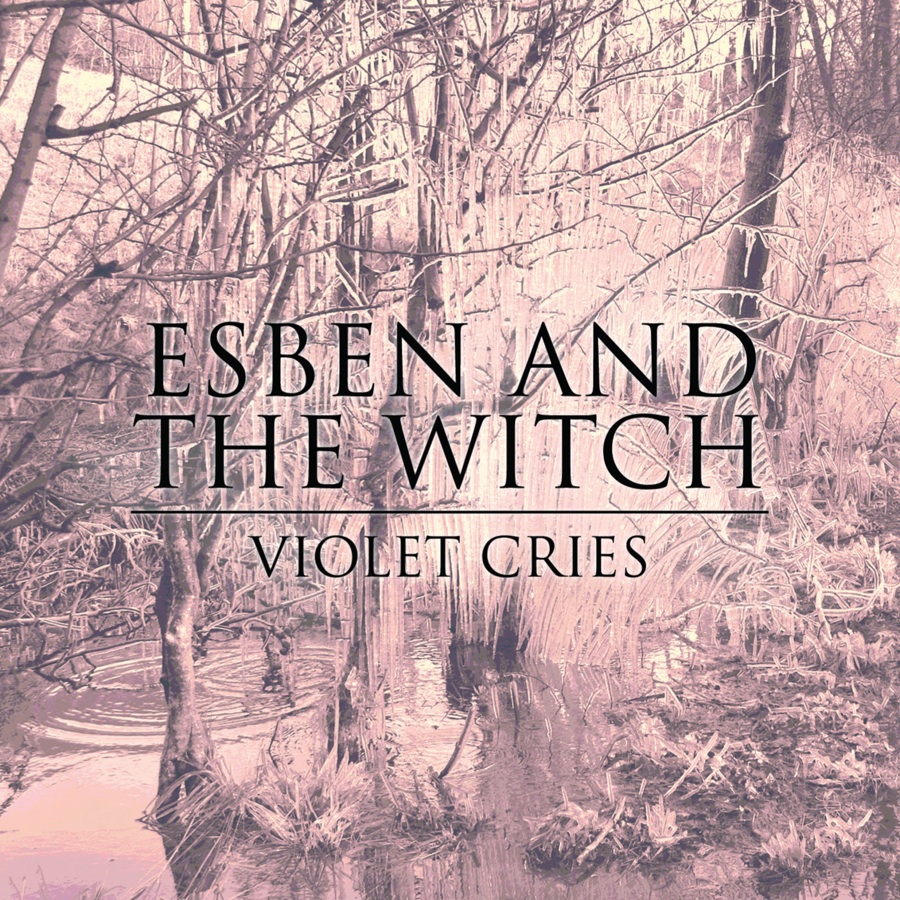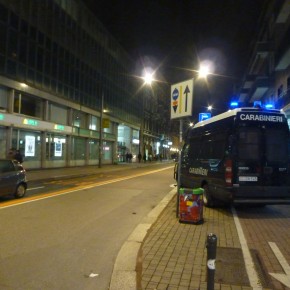While it’s possible to listen to Violet Cries without thinking about history, the forcefulness with which Esben and the Witch invoke musical forebears makes the exercise a little perverse. Not to mention that, unlike many artists who are assigned to the mental bin labeled “Goth,” the band doesn’t shy away from the burden of association. Asked in an interview to discuss the term’s abuse, they declared “that Gothic should be revered in its greatest forms” suggesting that, while this sensibility “lends itself to a sense of the dramatic and the ostentatious,” it need not be an object of derision.
Esben and the Witch instinctively grasp that the Gothic is an especially pliant category, one that accommodates outwardly contrary positions. Their songs expertly pull off the sort of balancing act that befuddles less savvy artists, simultaneously wispy and dense, suffused with languor yet insistent with a longing that refuses to be denied. “Marching Song” opens with rush of seething menace, but then pulls back into the tamped-down minimalism of Young Marble Giants. “Warpath” conjures Siouxsie and the Banshees and The Cure at their involuted best without becoming just another early-80s nostalgia trip thanks to “dirty” production that also calls Burial’s dubstep post-partyscapes to mind.
Indeed, what makes Violet Cries so compelling is that it manages to sound somehow “historical” without letting itself be easily dated, the signal trait it shares with Gothic literature and Neo-Gothic architecture of the 18th and 19th centuries. Like musical predecessors such as Portishead, PJ Harvey and Massive Attack, Esben and the Witch excel at turning sound into space that feels roomy without every seeming to be clear of the past. In the case of Violet Cries, traces of glitch-hop – through headphones, the record sometimes sounds defective or damaged – combine with layers of echo to create the same effects as tape that has been used a few too many times, as though the band wanted to veil their songs with the residue of a technology that has become expendable.
The lyrics of Violet Cries, while perhaps a little too obvious in print, reinforce the sense of hauntedness the music so forcefully conveys with a wealth of unabashedly Gothic phrases: “distant memories”; “a wilderness of foggy thoughts”; “fervent with feelings of extinction”; “a muted dreaming”; “spiraling, spluttering quivering wrecks”; “a glass cabinet displays mistakes”; “this place is a wasteland.” Although the imagery is often piled on without a clear sense of purpose, the result is appropriately evocative of a world in which regret becomes a kind of madness and the future a harrowing trip through the past.
Like the Gothic tradition it draws upon, Violet Cries shies away from specificity. If there is a politics in the music, it must be found in the absence of reference, a silence that speaks. For someone tuned into the increasingly harsh realities of post-Blair Britain, however, it’s not hard to interpret the inward-turn of artists like Esben and the Witch as a retreat from hope for positive social change. Just as the original “Goth” acts of the post-punk era abandoned the topical for timeless concerns, Esben and the Witch make music for an era in which resignation is ascendant. This doesn’t make their music is less powerful, just a whole lot more sad and a fitting soundtrack for the days of David Cameron.





